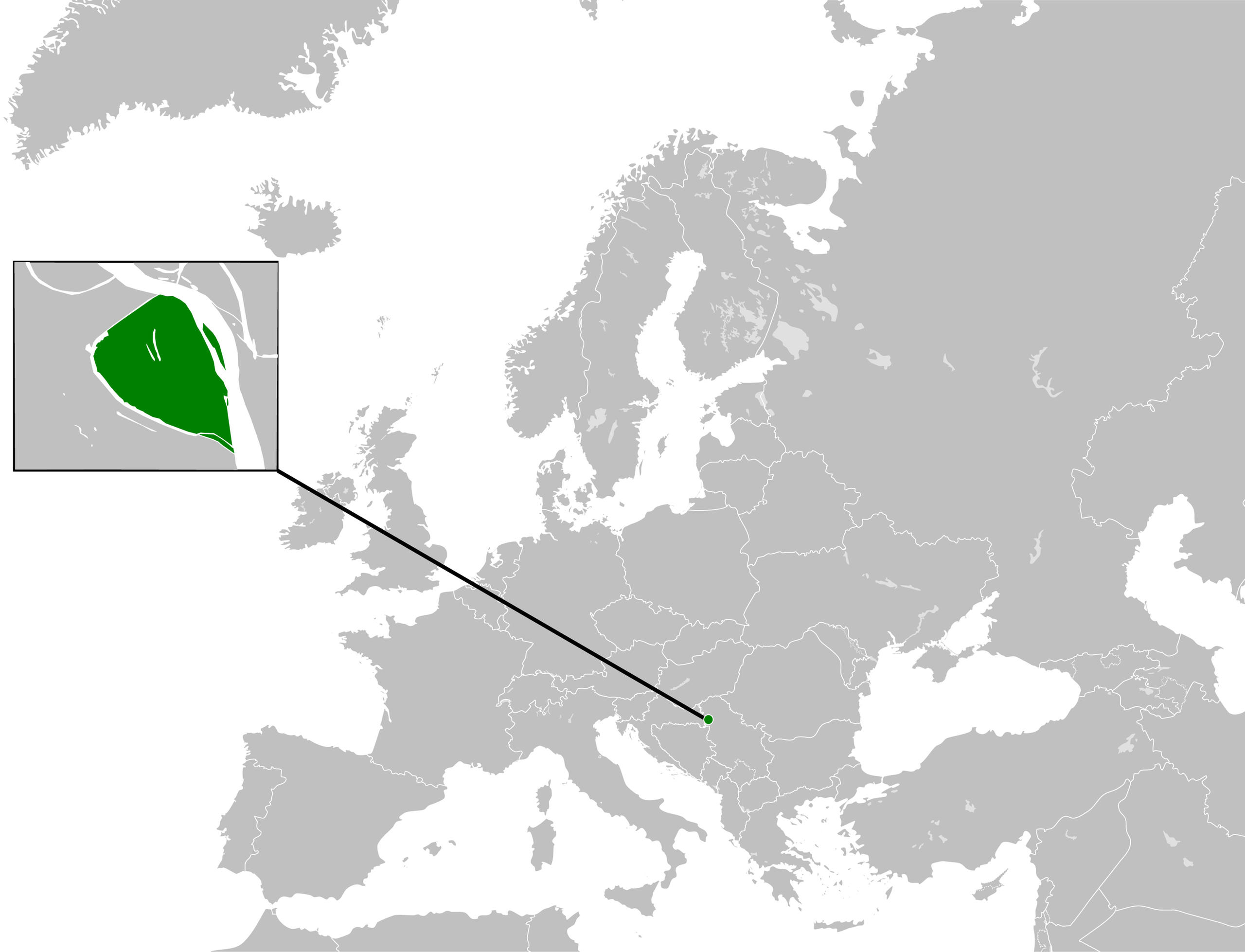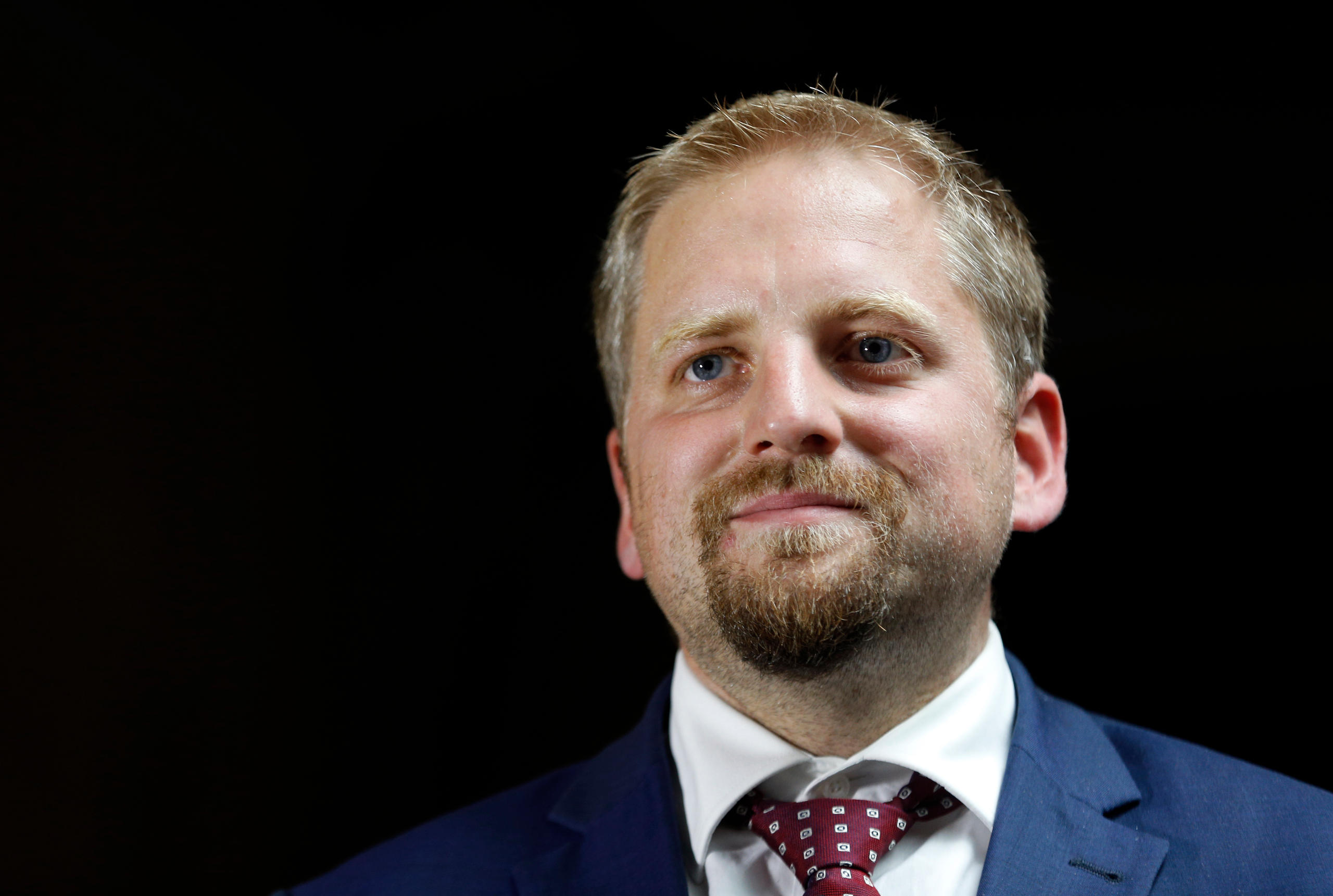
How a micro-nation was inspired by Switzerland

The newly emerged micro-nation Liberland wants to take the concept of political self-determination for citizens a few stages further than the Swiss form of direct democracy.
The seven square kilometres of land sandwiched between Croatia and Serbia was proclaimed an independent republic by Czech politician Jit Jedlička in 2015. It appears that neither Croatia nor Serbia had officially claimed this small patch of territory following the conflict in the region, making it one of the rare slices of no-man’s-land on the globe.
“We want LiberlandExternal link to act as an example of good governance to all the other countries of the world,” Jedlička tells swissinfo.ch. “In Liberland, citizens will not suffer any unnecessary interference or repression from the state.”
Liberland will not impose taxes, state education, marriage laws, welfare (both domestic and foreign aid), a physical banking system or laws saying what citizens can grow in their gardens.

Jedlička was invited by University of St Gallen students to address the annual St Gallen Symposium, which this year ran under the theme ‘The dilemma of disruption’. “We have taken the system of ‘double’ [direct] democracy from Switzerland,” said Jedlička. “In Liberland, parliament and government will create laws and allow people to challenge them by referendum. This is the best way to connect the system running the state with the will of the majority.”
For good measure, the self-styled President of Liberland refuses to recognise the European Union, but does want ‘his’ country to be part of the European Free Trade Association (EFTA), of which Switzerland is part.
Here’s the catch
There are only a few small catches: at the moment no country in the world recognises Liberland and it is unpopulated due to the uncompromising attitude of the Croatian police towards people physically claiming the territory. In fact, Jedlička and others have already been arrested and spent time in Croatian cells for trying to do so.
While admitting that there is still a long way to go before Liberland joins the ranks of fully functioning states in the world, Jedlička refuses to give in. Addressing the student-run symposium at the University of St Gallen, the Czech politician said he was inspired to do something after failing to stop cronyism and corruption in his own country. “I found that it was much easier to start a new country than to reform an old one,” he said.
He pointed out that 500,000 people had so far applied to become Liberland citizens. Only 300 have so far passed a selection process which weeds out criminals and members of right-wing political associations.

But this is where things get a bit hazy. Jedlička admitted that selection for citizenship currently rests in his hands and “a couple of friends”. It is unclear exactly what authority might later apply to the intended system of ‘merits’ which would determine the size of each citizen’s political voice in Liberland.
While no taxes will be levied or expected from anyone, people will be able to gain merits by investing in Liberland’s infratsructure. These merits will then be translated into the size of vote individuals can exercise in referendums. Merits could also be awarded for payments in kind – giving up one’s time and expertise for the common good.
Another potential controversy is the plan to base Liberland’s economy on becoming the “world’s best” tax haven and the easiest place on the planet to incorporate companies. For a country that does not believe in taxes, this makes sense, but Jedlička appeared unconcerned that this might attract negative attention from the anti-tax haven movement, together with the threat of sanctions.
For one thing, Liberland would never accept criminal money, he said.
Leap of faith
These systems, and in fact the whole enterprise, require a leap of faith from people who are used to things being run in a different way. “People are pretty good at figuring out for themselves what is good for them and what is bad,” Jedlička countered. “Who would apply for citizenship of a country they didn’t believe in? Who would apply to join North Korea?”
The whole venture is based on the principle of throwing out big brother. The state should go no further than run an independent judiciary and legal system, a foreign policy and a financial system (in Liberland’s case based on bitcoin), according to Jedlička. Everything else should be left to citizens to decide for themselves.
“Sooner or later Liberland will become reality,” he said. Nothing in the world can stop that. Self-determination is a very powerful force.”
When that happens, Jedlička is banking on Switzerland’s official recognition of the state. “Why not? Switzerland was one of the first countries to recognise Kosovo after all.

In compliance with the JTI standards
More: SWI swissinfo.ch certified by the Journalism Trust Initiative





























You can find an overview of ongoing debates with our journalists here . Please join us!
If you want to start a conversation about a topic raised in this article or want to report factual errors, email us at english@swissinfo.ch.